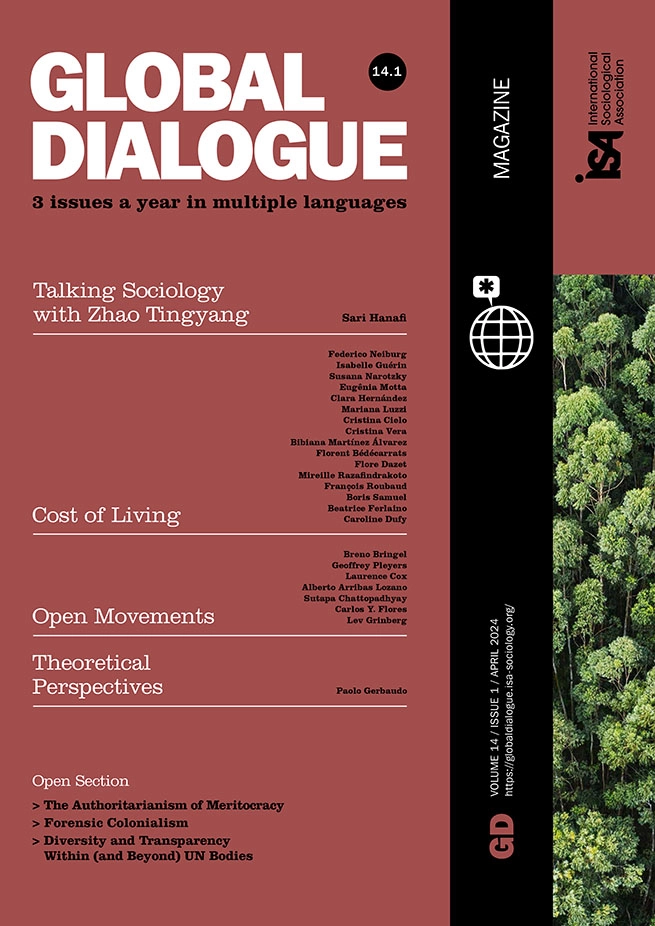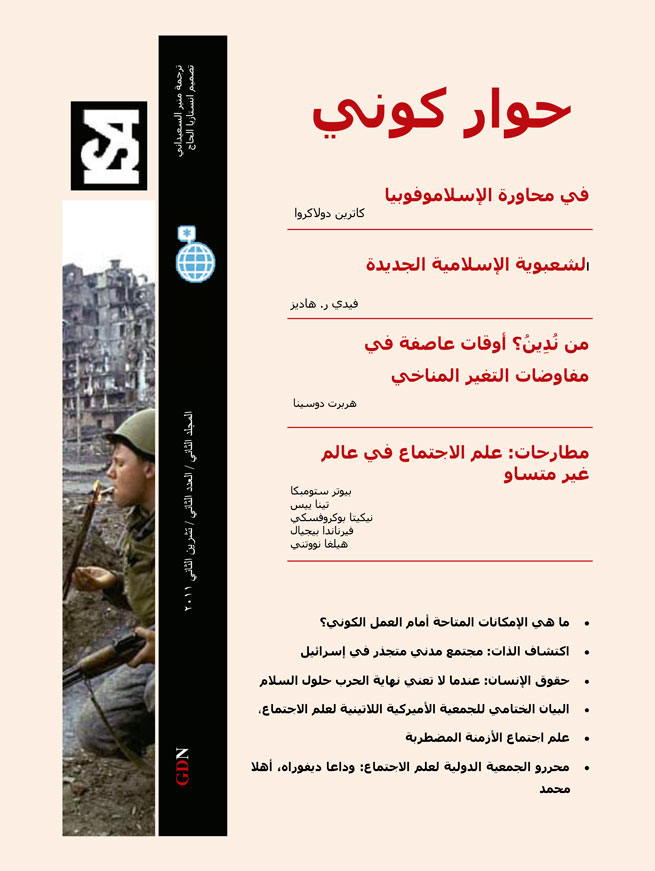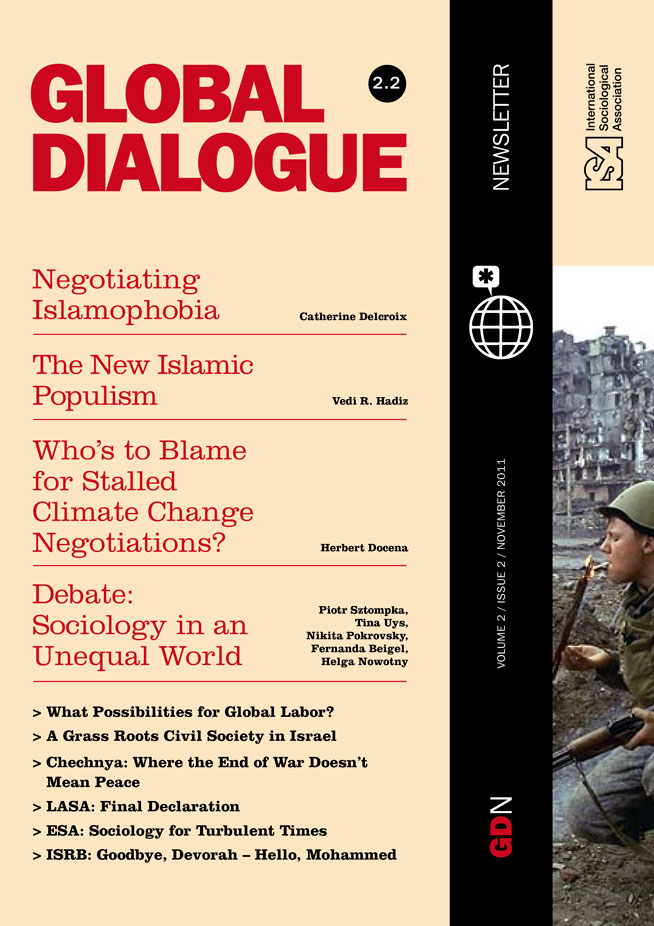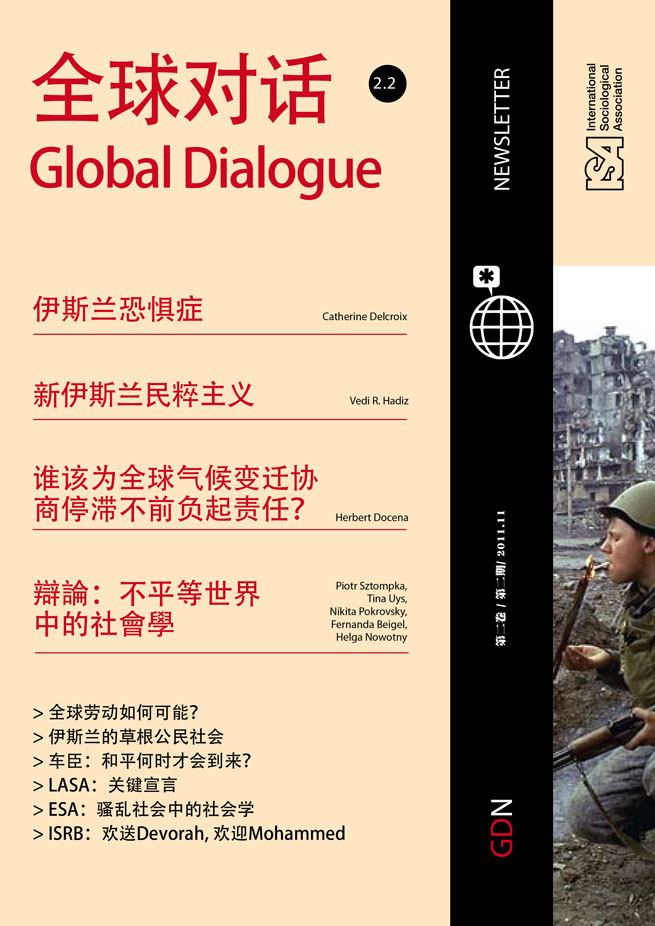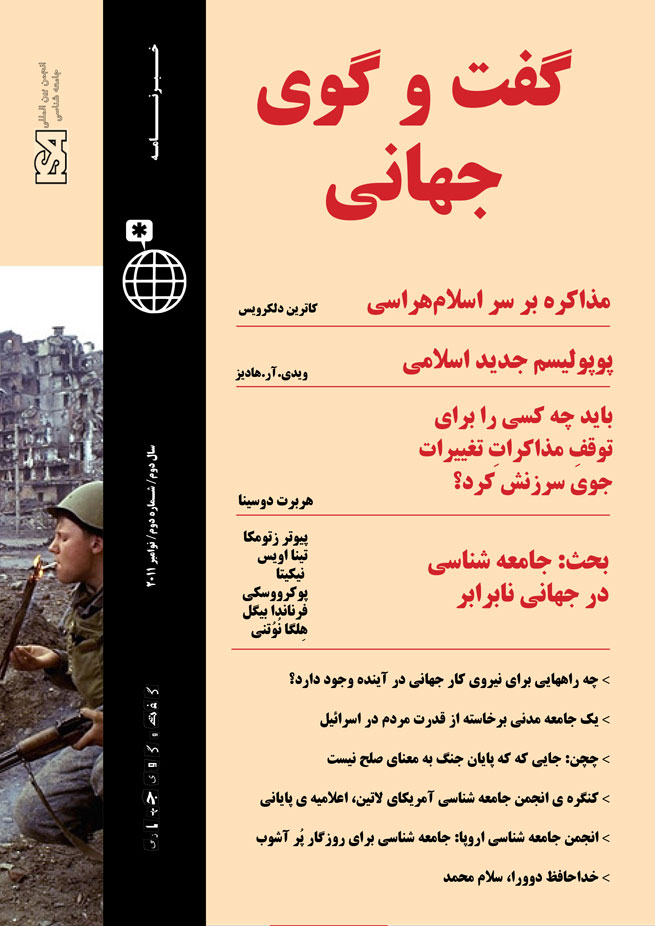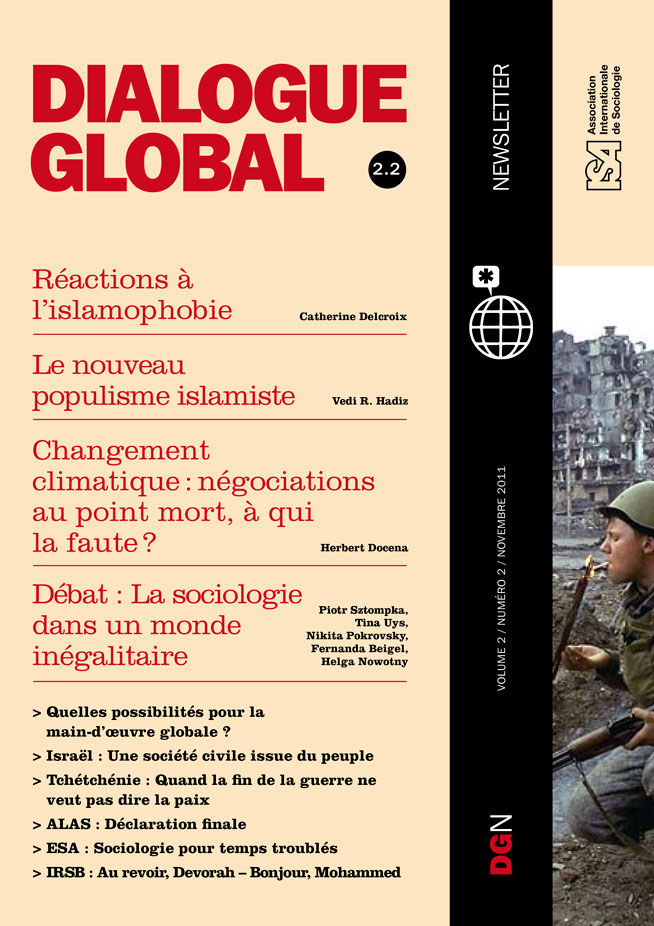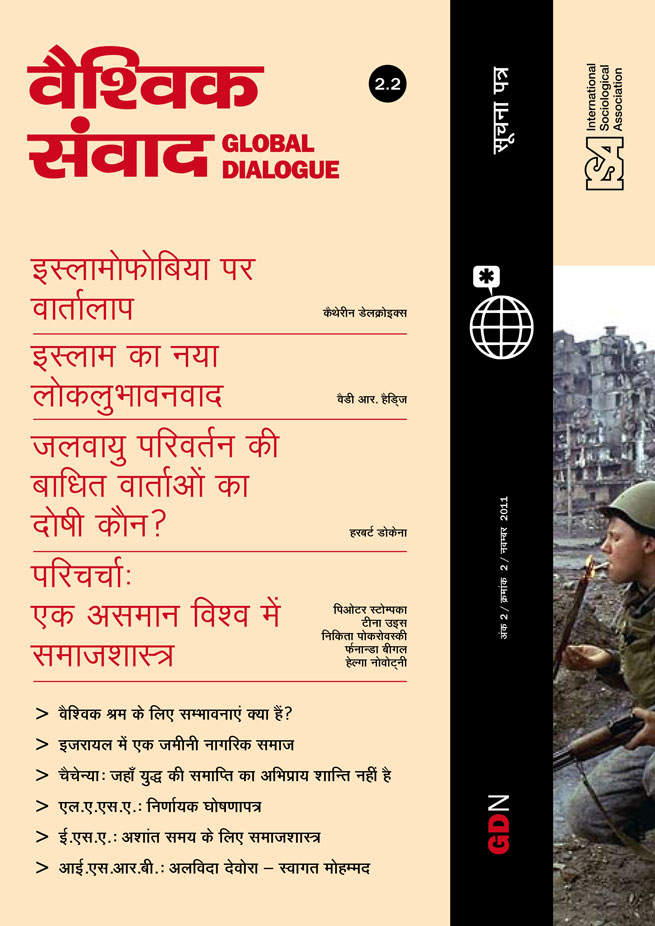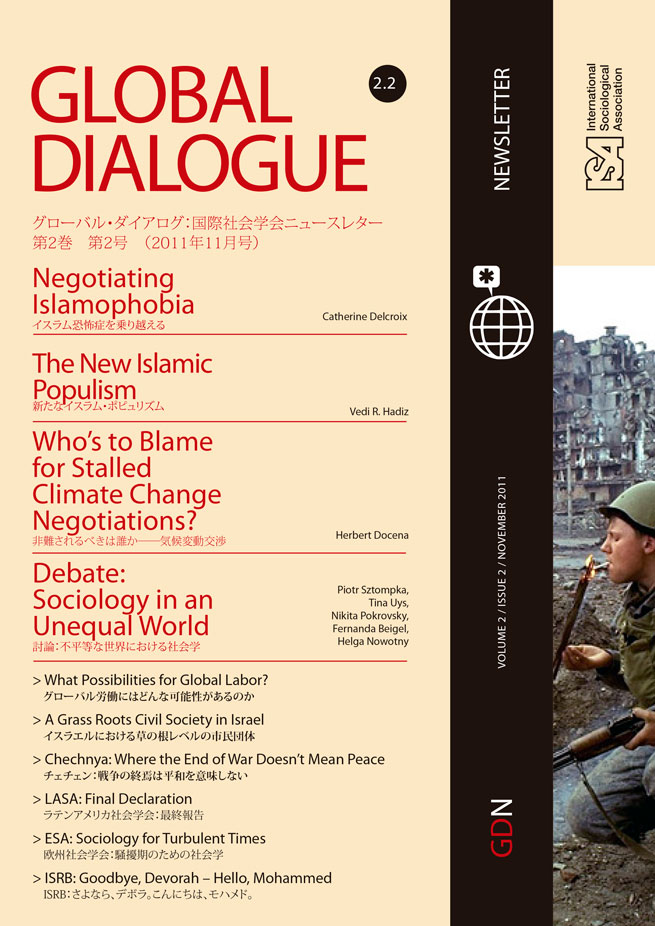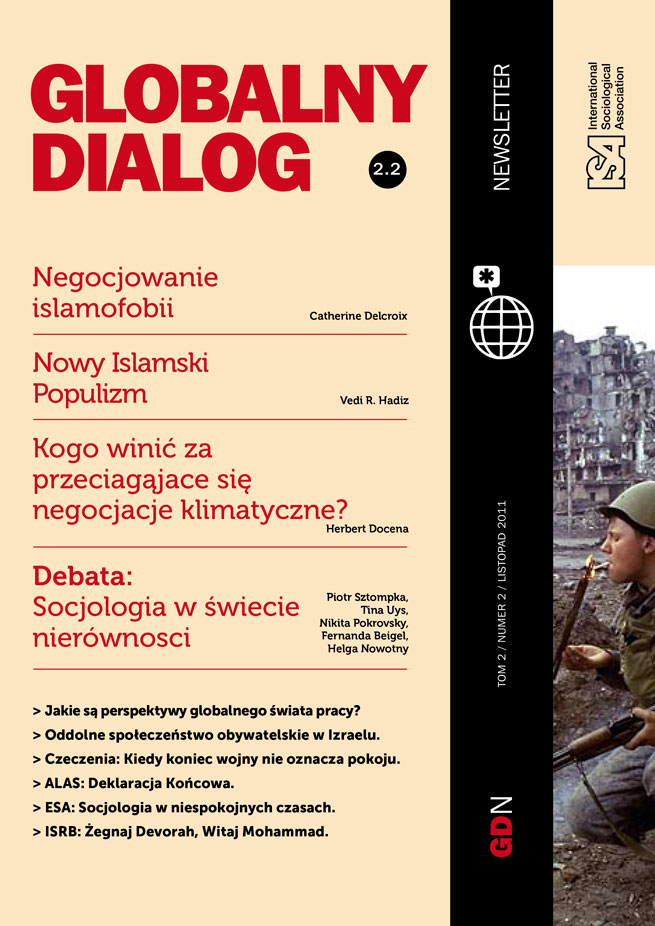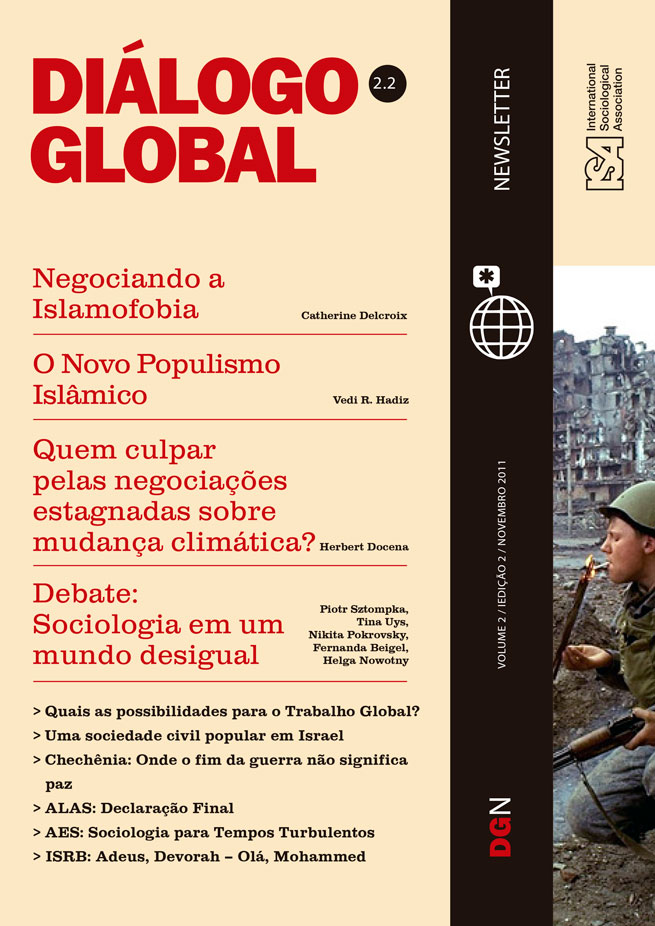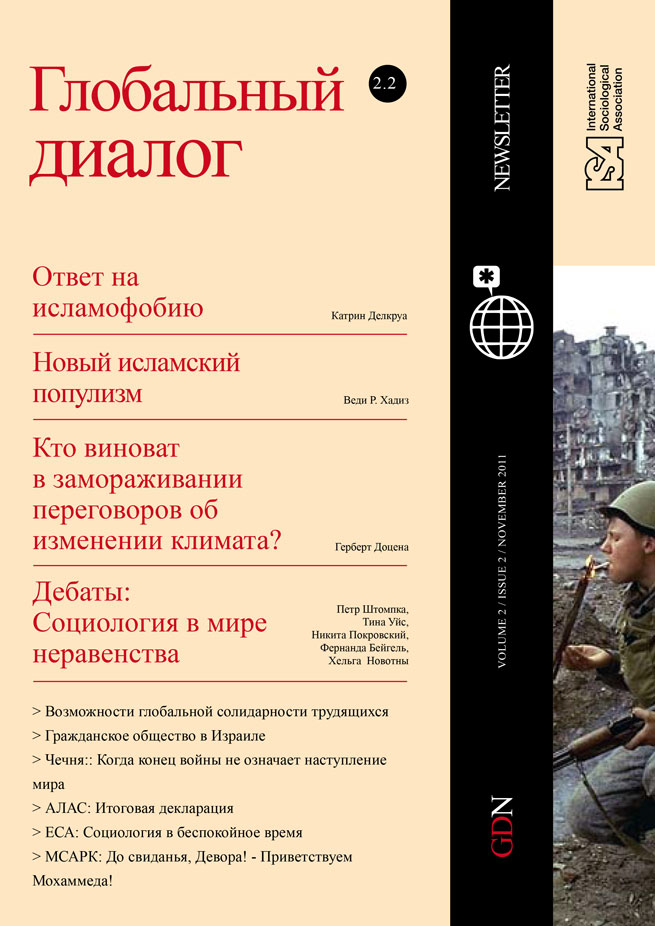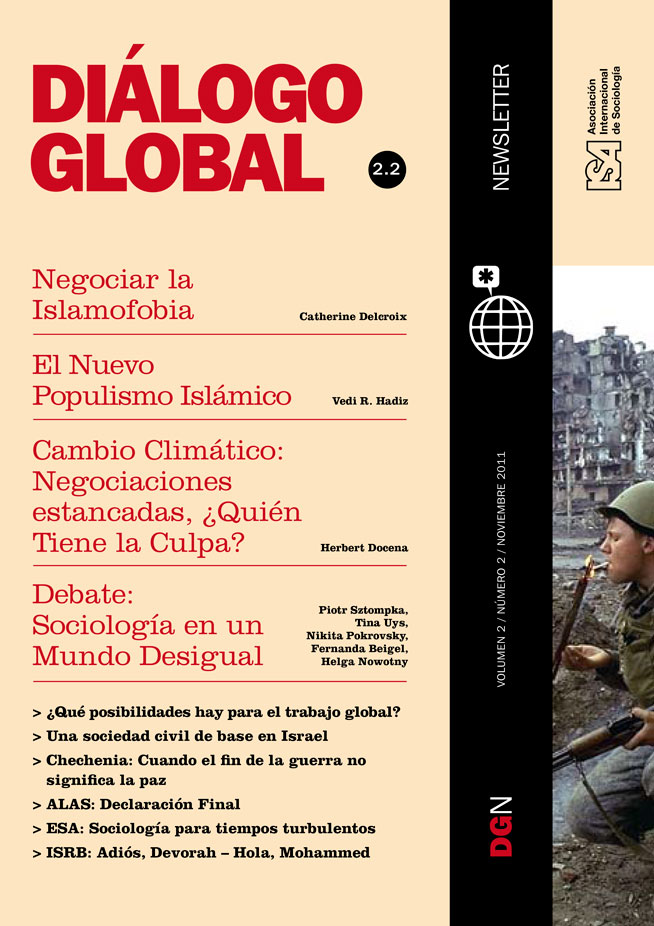Goodbye, Devorah – Hello, Mohammed

November 19, 2011
Devorah Kalekin finishes her term as the founding editor of the International Sociology Review of Books (ISRB), and hands over to her successor Mohammed Bamyeh, at the end of 2011. Her important contributions are celebrated in an e-mail interview with Jennifer Platt, ISA Vice-President for Publications.
Goodbye Devorah…
JP: How did you come to develop the idea of ISRB?
DK: The idea of an ISA publication dedicated to book reviews was initiated by Susan McDaniel, VP for Publications just before me. She was inspired to make the suggestion by the ASA’s Contemporary Sociology, one of the most popular of the ASA journals. At the time International Sociology was published only four times a year, and expanding the book review section (which you [JP] edited) to fill another two issues per year was justified only if those could provide information not easily found elsewhere. I was then a member of the Publications Committee, and since I was interested, Susan asked me to write a proposal.
I wrote then that “the initiation of an ISA journal dedicated to reviewing publications in the field is no less than a bid to rekindle the sociological imagination. […] Despite doubts about the benefits of the advance of economic globalization, sociology as a science must ‘go global’. How social processes can be explicated under widely different political, economic, and historical conditions is understandably a burning theoretical and practical issue in a world where the free movement of people, goods, and techniques has become a cliché. The proposed journal will […] implicitly represent an appreciation of the fact that today the discipline is being enriched by the accruing insights of colleagues whose professional expertise is modulated by distinctive experiences of society. [… It] will be providing an essential service by offering a platform for collecting, ordering, and managing, if not systematizing, varieties of sociological points of view that would ordinarily not be accessible.”
Planning started with the name. I hoped that calling it Review of Books would suggest suitable gravitas. What emerged – review essays, interviews, headings of book review sections that change more or less from issue to issue – had to do with my obsession about combining the spice of variety with a secure disciplinary framework. My understanding is that the editor’s task is to ensure that publications reviewed would relate, insofar as possible, to places outside the Anglo-Saxon world; and would review publications in languages other than English. The review essays were envisioned as opportunities to summarize important trends in sociology from different points of view. My plan was for each issue to have three review essays: on classical works, on publications in methodology, and on works in one of the subfields of sociology. I was delighted to find an excuse to include interviews because I love reading them. Reasoning that people who read sociology are probably curious about how the works came to be written, I introduced the section on ‘Words from writers’. Another editorial decision was to allow for rather thorough reviews, of about 1,500 words, with ‘glances’ at important publications which could not be reviewed fully in time for a specific issue.
JP: Can you summarise what ISRB has achieved so far?
DK: Although the plans aspired to more than has been accomplished to date, ISRB’s most important contribution is, to my mind, that it has sensitized readers to the wide scope of disciplinary themes and valid approaches that characterize sociology around the world today. It has also provided a platform for different generations of sociologists; books reviewed include tomes by young sociologists, as well as by veterans who write contemporary classics. I’m also gratified that reviewers and writers of review essays come from all the continents and, as a matter of fact, from all levels of the academic hierarchy. To some extent ISRB has contributed to breaking down the language barrier. There have indeed been reviews of books written in many languages apart from English and, over time, I was able to accept reviews in languages other than English.
JP: What do you see as special highlights?
DK: There are several, to my mind. Above all, I am grateful to all those who collaborated with ISRB, and made it possible to fill each issue with a rich collection of sociological reflections. The interviews are another highlight. Because of space limitations, I had to ask rather schematic questions. But each of the sociologists I have had the pleasure of talking to has disclosed aspects of the discipline that could not be deduced only from reading their work. Their ardor and worldviews often add surprising insights into their publications. I also think it’s important that ISRB has published reviews of books in relatively new subfields, but has also given place to older works that are relevant.
JP: How has it been received?
DK: In the current climate of accountability, the professional answer would be to quote an impact factor. Fortunately, or unfortunately, depending on your point of view, the impact factor is not calculated for reviews. Most are solicited; where necessary, revisions are often negotiated by editor-reviewer consultation; and refereeing, except for review essays, is meaningless. So perhaps we can judge by the standing of International Sociology. According to SAGE statistics, its impact factor has risen steadily within the last five or six years. One would hope that ISRB has made some contribution, albeit hidden, to that record. Beyond that, colleagues have commented favorably; and I’d like to assume that they are sincere.
JP: Where have you found the most problems?
DK: In a recent e-mail exchange, Alan Sica, the editor of Contemporary Sociology, wrote that everybody likes to read reviews and nobody wants to write them. Hopefully the first part of his statement applies to ISRB, but undoubtedly, the second part does. The problem besetting an editor of a publication of reviews is soliciting contributions. There is a steady stream of books to the office, and an even more persistent stream of notices about books soon to be published. Reviewing lists of books and descriptions in order to choose the ones most relevant to our enterprise is the fun part; then one has to find reviewers. In an organization like the ISA, with its almost 60 research groups, it is not difficult to find the names of people whose expert opinion is worth having. But convincing experts that it is in their interest not only to read a newly published work, but also to share their conclusions with colleagues by writing a review, is quite another matter. Obviously, this is a problem that gets solved, but it is troubling.
Another problem that I’ve encountered refers to the content, and this was not solved to my satisfaction. My plan was regularly to include reviews of visual materials of sociological import. If anything, the range of these materials and their quantity are steadily increasing. Yet, throughout the years of my editorship, I was able to solicit only a handful of articles on socially significant documentary films and video records of encounters with important sociologists.
JP: Do you have any special message for your successor?
DK: Apart from noting that for me, the years since ISRB made its debut have been at once an adventure and a fascinating learning experience, I wouldn’t dare! I feel honoured to be handing over the editorship to a distinguished scholar, and wish Mohammed Bamyeh success in furthering the reach of ISRB in every sense of the word.
… Hello Mohammed
Mohammed Bamyeh, the new editor of ISRB, is professor of sociology at the University of Pittsburgh, USA. He has devoted much of his career to teaching and research in Islamic studies, political and cultural globalization, civil society and social movements, and comparative social and political theory. For more detail, see his web site: www.sociology.pitt.edu/faculty/index.php?q=mohammed-bamyeh/view.
He very much looks forward to continuing in the footsteps of Devorah Kalekin, and contributing further to fostering ISRB’s unique profile. He invites prospective reviewers who would address lesser known but promising dimensions of sociological inquiry in a variety of world traditions, and places a special emphasis on materials not available in English, or otherwise difficult to access internationally. For e-mail contact: mab205@pitt.edu
